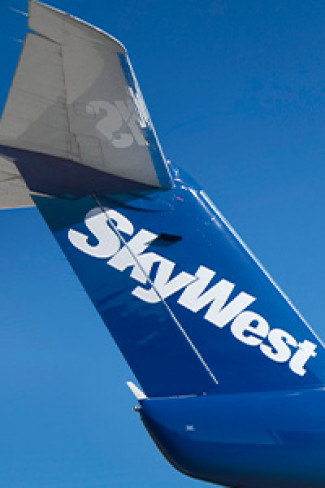You Feel Tired, but Are You Fatigued?
There is a difference between being tired and being fatigued.
Fatigue is a debilitating condition that affects your ability to process complex thoughts. When you are fatigued you have passed slow thinking and gone directly to "stupid." The inherent danger of fatigue is that your body may feel OK, but your mind is not able to perform at the same level. So how do you know if you are fatigued if you canÂ?t think clearly?
This is the danger of trying to determine if you are fatigued based on how you feel.As professionals we tend to base our decisions on lessons learned from prior experience. This can be counterproductive as it relates to fatigue. There is a chance that you have been fatigued in an aircraft in the past and nothing bad happened. Do this a few times and your perception of the risk involved in operating while fatigued is skewed in a very dangerous direction. This is further compounded by our current fatigue management system in aviation that relies on the crew member to make the very difficult decision that they are fatigued. Is it really smart to require the "stupid" person to make difficult, complex decisions?
The good news is that science is finally starting to catch up with our operating environment and we now have some tools that can help you operate safer. As far back as 1997 researchers realized a direct correlation between cognitive ability and mental acuity for those under the influence of alcohol and those suffering from fatigue.
Research shows that people that have been awake for 17 hours have the mental acuity of a person with a blood alcohol content (BAC) of 0.05%. Those that have been awake for 21 hours equate to a BAC of 0.08%. Both of these BAC exceed the legal limit for a professional pilot. [1]
So how can this information be useful for a crewmember? Before every single duty period look back to the time that you last awoke from a restorative sleep cycle (> 5 hours of sleep) and count the hours awake. Then add the hours until you expect to be released into rest. This total equals your total hours awake. If it exceeds 17 hours you are in danger of being fatigued.
Thinking another way, if you have had less than 7 hours sleep in the previous 24 hours counting from the end point of your duty period, you are operating with the mental acuity of a legally intoxicated pilot.
A second tool that has been published recently by scientific researchers is that a person is likely to not suffer the debilitating effects of fatigue if their duty period does not exceed the total amount of sleep of the previous 48 hours. In other words, add together the total amount of sleep received in the previous 48 hours, and this total should equal the maximum time on duty . [2]
For example, if during the previous 48 hours you slept six (6) hours one sleep cycle and seven (7) hours during a second cycle you should expect that any duty period that exceeds thirteen (13) hours would put you in a fatigue state.
Notice that neither of these two tools asks how you "feel." When you are fatigued you are "stupid," and asking unquantifiable questions of a person having trouble making decisions is not smart. Is it appropriate to ask an intoxicated person how they feel? So does it make any more sense to ask yourself how you feel when what really matters is whether you will be fatigued at the end of your duty period?
Use the two tools in the graphic above to reach a scientific conclusion that can help you decide if you are safe to continue on duty. These tools will only be effective if you use them proactively to prevent yourself from operating while fatigued.
Finally, remember that these tools do not take into account multiple time zone shifts, or dealing with an accumulated sleep debt.
Michael Moody, Jris Chairman of the Independent Pilots Association Safety Committee and a DC8 first officer.
-

Airshare 07/22/2024
-
Alpine Air 07/18/2024
-

Atlas Air 07/17/2024
-

Piedmont Airlines 07/10/2024
-

SkyWest 07/09/2024
 AIRLINE PILOT CENTRAL
AIRLINE PILOT CENTRAL